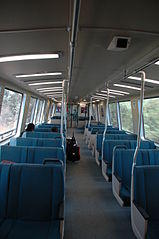Simple Ways To Remedy Motion Sickness
The odd bout of motion sickness may affect all of us. But people who suffer with this condition may actually dread traveling. There are varying degrees of motion sickness. Some people will only experience it on a plane or boat trip, while others may have to contend with it even on a short drive around the corner.
Motion sickness can affect a person’s life in many ways and is often not seen in a serious light by those who do not have a problem when traveling. But if you suffer with motion sickness, especially a severe case that is triggered within a few minutes of driving or riding the bus, then you will know just how debilitating it can be.
You may already have changed your lifestyle just to avoid motion sickness. You may have tried all the drugs on the market with limited benefit. But even if you have not found lasting relief, you should try to find ways to at least minimize the severity of motion sickness.
About Motion Sickness
The first step in overcoming, or at least managing, any condition is to understand as much about it as possible. Motion sickness is when you feel unpleasant while moving. Typical symptoms that you may experience are nausea, dizziness, headaches, paleness of the skin and excessive sweating. Abnormal fatigue and increased salivation may also occur. In milder cases most people only experience nausea and dizziness. A headache, sweating and paleness is more prominent in severe or prolonged cases of motion sickness.
Dangers
All of these symptoms are temporary. It often passes after a short while on its own when a person stops moving. But some people feel better after vomiting or a short nap. Although an episode of motion sickness can be very intense, it does not cause any long lasting physical effects on the body. But it does have a significant psychosocial impact on some people with severe episodes that are easily triggered, particularly when motion sickness occurs during work-related activities.
Reasons

So why does motion sickness arise? The body has several mechanisms to detect motion. It involves signals from the ear, eye, muscles throughout the body and the skin. These different signals work together to provide information to your brain about acceleration, speed and direction. It is believed that when these signals are conflicting then motion sickness arises. Another theory states that it is abnormal signals, particularly from the sensory apparatus in the ear, that causes motion sickness.
Cure
Whatever the exact cause, it is known that motion sickness is tied in with movement. Or even the perception of movement even though you are stationary. Some people experience motion sickness while others do not. Some people have it worse than others. Some factors that are unrelated to motion may play a contribute to the onset of motion sickness. Therefore there is no single solution for motion sickness and there is no cure for most people who have severe or repeated episodes of motion sickness.
Tips for Motion Sickness
There are a number of ways that you can reduce the severity of your motion sickness or even prevent it from starting. Since there is no single solution or cure, these tips may not work for every person. People who experience motion sickness with even short car drives often find that general prevention tips for motion sickness will not work every time, if at all. There are a range of medication, herbal and homeopathic remedies that can be tried as well as different therapies. Pharmaceutical drugs have usually undergone clinical trials and the side effects are known. Herbal remedies can have a similar effect as drugs and side effects are also possible. Always ask your doctor about any substance or therapy that you plan to try if it has not been prescribed by a doctor or dispensed by a pharmacist.
Remedies for Motion Sickness
Some of the therapies and remedies that you can try, apart from medication, includes:
- Herbs like ginger and peppermint. Sometimes a peppermint flavored sweet may be helpful.
- Homeopathic remedies like Cocculus, Nux Vomica and Tabacum.
- Acupuncture before a trip and acupressure while you are traveling.
- Breathing exercises.
- Hypnosis.
- Visualization techniques.
- Psychotherapy may be helpful if your motion sickness is related to past traumatic events.
Choose Your Seat Carefully
Try to sit in the front passenger seat when you are being driven around.Many people who suffer with motion sickness do not seem to have a problem when they are driving. Keep your eyes fixed on the horizon and try not to stare out of the side windows. It will ensure that the visual signals correlate with the other signals of motion. It is not as simple when you are flying since the crew are the only ones allowed in the cockpit. Instead choose to sit towards the front of the plane or the seats near the wings. Sitting at the back can often worsen your motion sickness.
Eating Before and During Travel

Do not travel on an empty stomach or after you have had a very large meal. This often makes motion sickness worse. Instead have a light meal before traveling. Some people find salty foods and dairy products a problem so stay away from it. Low calorie meals also seem to be better in preventing motion sickness. Since you will have to eat during long flights, try not to let your appetite get the better of you. Rather stick to small light meals and opt for less oily or spicy plane meals. Dry crackers and gassy drinks may be better. Sip cold water throughout your trip.
Get Enough Air When Moving
Crack a window or open the air vents while traveling. Having fresh air helps with preventing and easing motion sickness. It is not just about cool air but rather about moving air. Air conditioning may not be sufficient within a car. In a plane, let the air vent hit you directly on the face. Ask fellow passengers not to smoke if they do so. If none of these options are available then carry a small portable electric fan or even a paper fan. When all else fails, try fanning yourself with a magazine. Air blowing on your face can also be suffocating at times so do not turn it up too high.
Reconsider Your Travel Activities

Planning to read while traveling? It might kill the boredom on a long trip but it is one of common triggers for motion sickness. It can be just as much of a problem if you plan to write or type while moving. Rather listen to some music. Look out through the front window or just keep your head back against the seat and enjoy the trip. Although the sensory apparatus for motion detection lies in the ear, it is essentially separate from your hearing apparatus. Music should not be a problem. Some people have a problem if they sleep while traveling while others are able to avoid motion sickness by sleeping through the trip.
Take Medication As Prescribed
Your doctor may prescribe different drugs to prevent or at least minimize motion sickness. It can be in patch form which you stick to your skin or as oral medication (tablets or capsules). Most of these drugs need to be taken before you embark on your trip – anywhere from 6 to 8 hours to 30 minutes before traveling. Follow these directions closely. It may not be as effective if you only take it once the motion sickness starts while you are traveling. Some drugs can be taken during the course of your trip. But do not overdo it if it is not helping. Many of these drugs have side effects similar to the symptoms of motion sickness and can make the episode worse if used in excess.
References:





